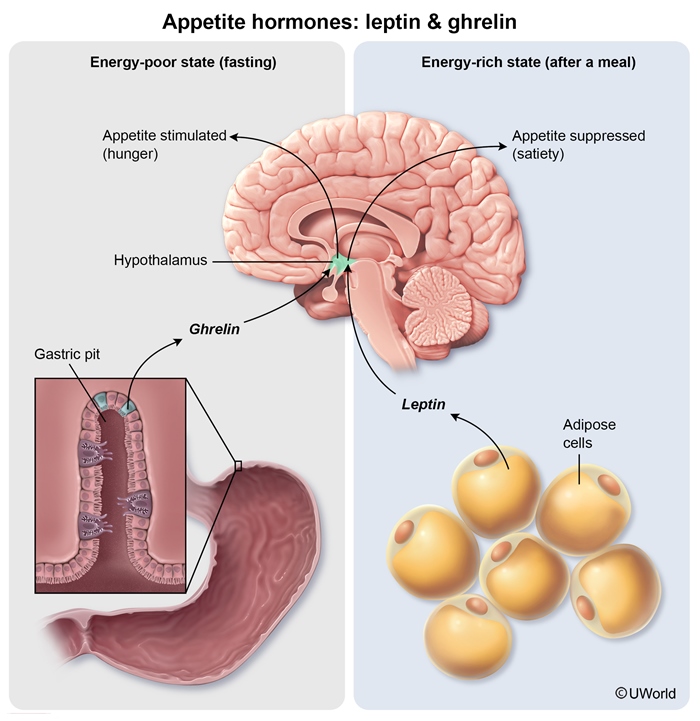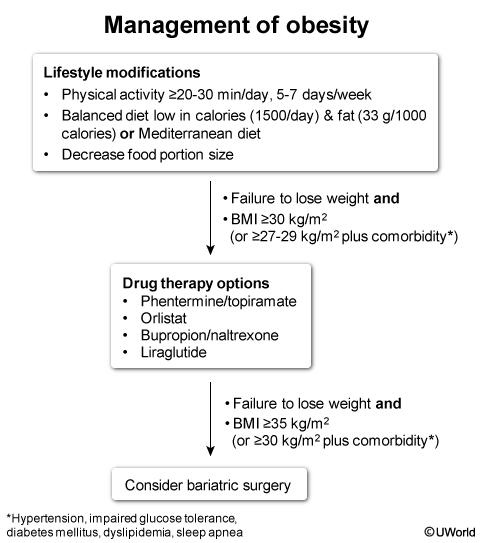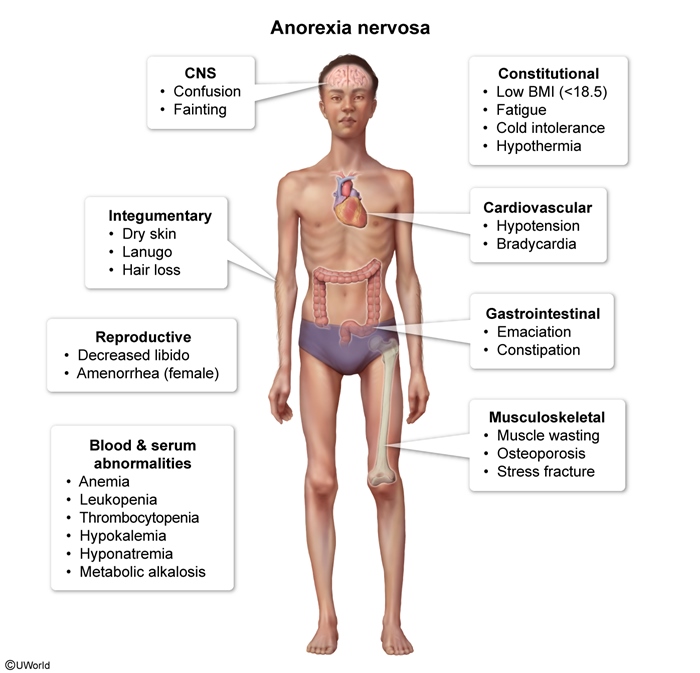Appetite Regulation
Article Sections
Introduction
Homeostatic mechanisms affecting appetite and energy balance are normally tightly regulated to prevent major fluctuations in weight. The hypothalamus and various hormones are the primary governing agents for hunger, satiety, and energy expenditure. Dysregulation of appetite regulation is evident in several disorders, including obesity, anorexia nervosa (AN), and cachexia.
Role of the hypothalamus
The hypothalamus governs appetite by integrating various afferent signals from peripheral tissues and influencing the actions of various organs and tissues involved in hunger, satiety, and energy metabolism (eg, thyroid, small intestine, adrenal gland). The cerebral cortex also influences food-related behaviors by integrating additional information from the senses (eg, sight, smell of food).
Key somatic inputs to the hypothalamus arise from the following:
- Gastrointestinal tract: Directly relays information (eg, via the vagus nerve) regarding the degree of stomach filling (eg, stretch/distension), also secretes various hormones that module vagal activity based on the presence of food in the stomach (see below).
Continue Learning with UWorld
Get the full Appetite Regulation article plus rich visuals, real-world cases, and in-depth insights from medical experts, all available through the UWorld Medical Library.
Unlock Full AccessFigures


